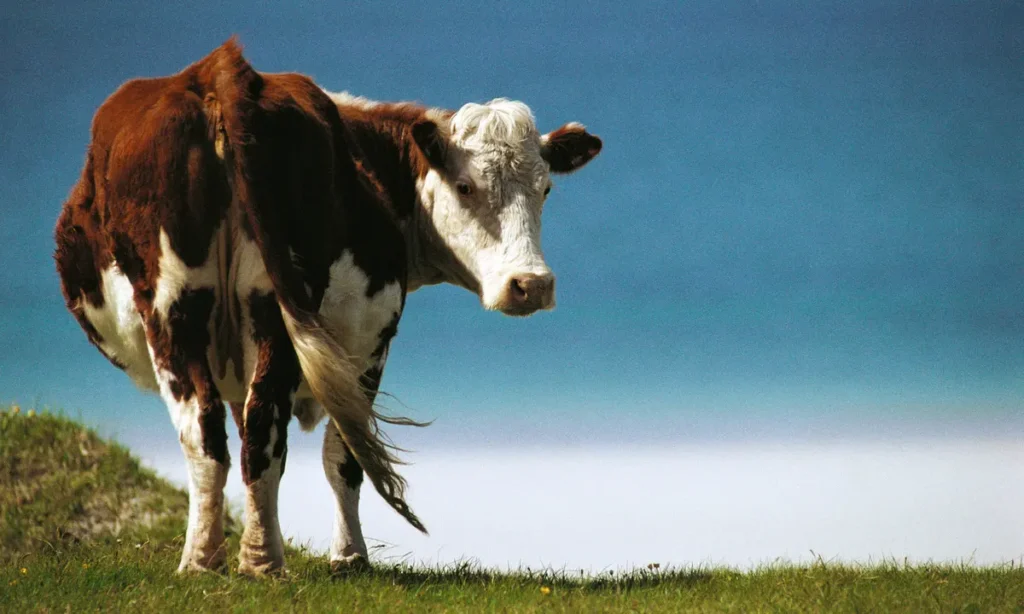Newsmatro

A Seattle-based company, Lumen Bioscience, has been awarded $1.5 million to develop a product aimed at reducing methane emissions from cows, primarily stemming from belching rather than flatulence. While both ends of a cow produce methane, nearly 97% of this greenhouse gas is released through belching, as reported by the U.S. Dairy Council and NASA. Methane is a potent contributor to global greenhouse gas emissions, being over 25 times more effective at trapping heat in the atmosphere than carbon dioxide.
Lumen Bioscience received the Wilkes Center Climate Prize, funded by Utah-based organizations and industries, with a focus on supporting innovative ideas to mitigate the impacts of climate change. The company has patented a technology that neutralizes the organism in a cow’s stomach responsible for inducing belching. They propose reducing methane emissions by incorporating a patented blend of enzymes into the food of beef and dairy cows.
Approximately 20% of global greenhouse gas emissions are attributed to methane, as per the U.S. Environmental Protection Agency. Around 25% of methane emissions in the United States come from livestock herds, which provide products such as milk, cheese, butter, ice cream, and meat for human consumption.
Lumen’s innovative approach to tackling methane emissions involves a mix of enzymes that can effectively reduce the release of methane by cows. The company aims to scale up this technology to significantly curb greenhouse gas emissions, making a substantial impact on atmospheric warming potential.
The unique aspect of this initiative lies in addressing cow belching as the primary source of methane emissions. While the exact reasons behind the misconception that cow flatulence produces more methane than belching are unclear, Lumen Bioscience’s groundbreaking solution aims to tackle this significant environmental issue.
Cows’ digestive systems play a crucial role in this process, particularly the rumen, a compartment in their digestive tract containing bacteria and microbes that assist in breaking down hard-to-digest foods such as grass and hay. Within the rumen, a specific microorganism known as a methanogen produces methane during the fermentation process, leading to the belching of this potent greenhouse gas. Cows, in fact, burp silently.
Lumen Bioscience’s strategy involves engineering spirulina, a microbe, to produce a natural enzyme protein capable of eliminating methanogens. This innovative approach aims to reduce methane emissions without adversely affecting the cow or its beneficial bacteria.
The $1.5 million awarded through the Wilkes Climate Prize will enable Lumen Bioscience to further develop and test its methodology as a food additive for cows, with the goal of measuring emissions reduction over time.
This groundbreaking endeavor, led by co-founders Brian Finrow and Jim Roberts, offers a promising solution to address the significant environmental impact of methane emissions from cows, contributing to the fight against climate change.